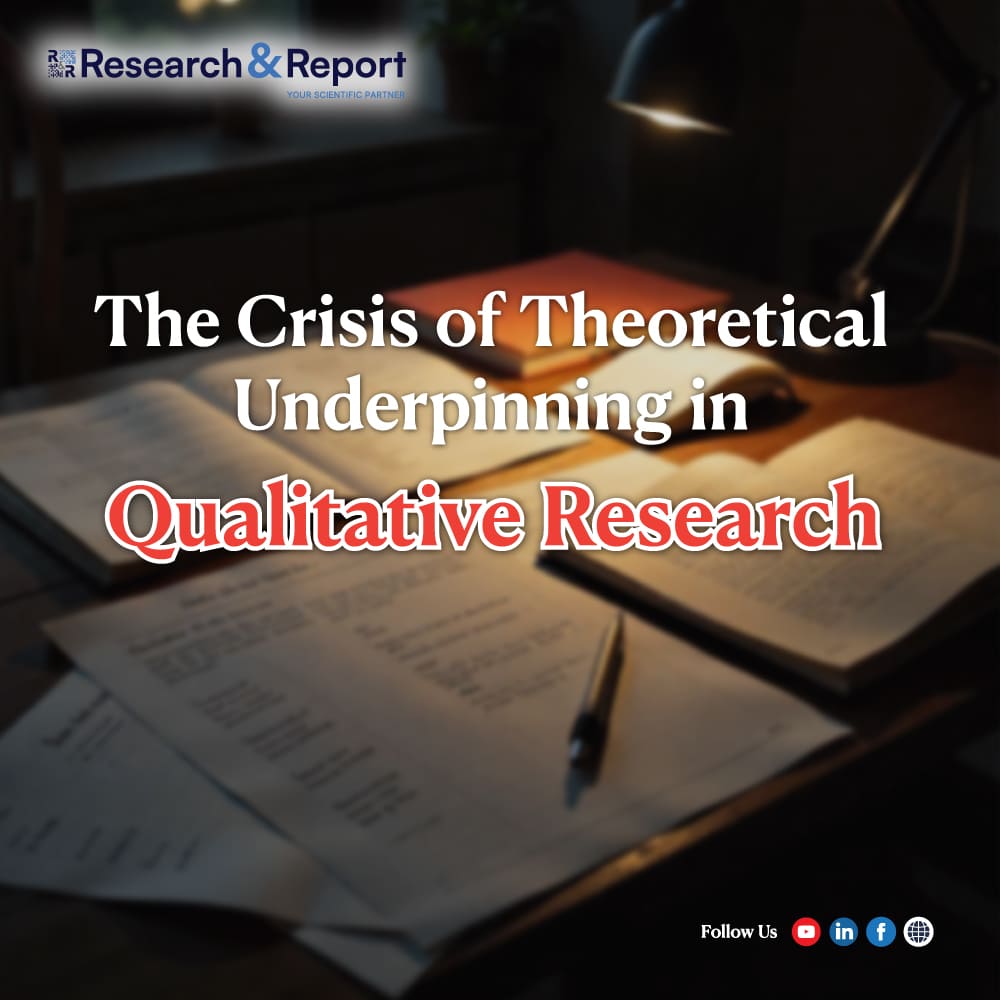Despite the growing acceptance and institutionalization of qualitative research in academia, many studies still fall into a critical trap — they lack a solid theoretical foundation.
While qualitative methods are celebrated for exploring complexity, meaning, and lived experience, they are increasingly being used in ways that are conceptually shallow, methodologically misaligned, and analytically weak. This crisis is less about technical skill, and more about a fundamental misunderstanding of what theory does in qualitative inquiry.
What’s Going Wrong?
Here are the core issues that continue to plague qualitative research — but are rarely acknowledged in peer reviews or training programs:
1. Theory as an Afterthought
Far too often, researchers treat theory as a literature review accessory rather than the scaffolding of the study. Instead of using theory to guide question formulation, sampling, and interpretation, it is retrofitted during discussion — weakening coherence.
Reminder: Theory should guide what you look at, how you look at it, and how you make meaning from it.
2. “Grounded Theory” as a Default Excuse
Many studies claim to use Grounded Theory simply to justify the absence of prior theoretical engagement. But grounded theory is not a license to avoid theory — it is a rigorous and specific methodology with its own rules, traditions, and logic.
Using “grounded theory” to justify minimal engagement with existing literature is intellectually lazy — and epistemologically incorrect.
3. Mismatch Between Method and Paradigm
Methodological choices in qualitative research are not just techniques — they are philosophical commitments. For example:
- Using Interpretative Phenomenological Analysis (IPA) without grounding in phenomenology
- Conducting narrative analysis without acknowledging narrative theory or discourse ethics
- Applying case study designs without articulating the logic of replication or embeddedness
When method and paradigm are misaligned, findings lose both depth and legitimacy.
4. Conceptual Vagueness in Coding and Analysis
Without a clear theoretical lens, coding becomes a surface-level tagging exercise. Researchers may label data but fail to interpret it in a way that builds or challenges theory.
Coding without theory leads to descriptive drift — you collect voices but not meaning.
5. Descriptive Findings Passed Off as Insight
A final symptom of poor theoretical grounding is when findings are merely narrative summaries. There is no explanatory power, no conceptual abstraction, and no contribution to broader debates. Such work may be rich in quotes, but poor in meaning.
What Should Researchers Do Instead?
To avoid this theoretical vacuum, researchers must:
- Select a guiding theoretical framework early — even in exploratory studies
- Align epistemology, methodology, and method — coherence matters
- Use theory to sensitize, not strangle — let it guide inquiry, not dictate it
- Return to theory during analysis — don’t abandon it after design
- Be explicit about limitations — especially when working inductively
Final Thought
The power of qualitative research lies not just in giving voice to participants, but in offering meaningful, theory-driven insight into complex realities. Without theoretical underpinning, qualitative studies risk becoming storytelling without science — persuasive but unconvincing.
Want to explore more insights? Visit Research and Report blogs

